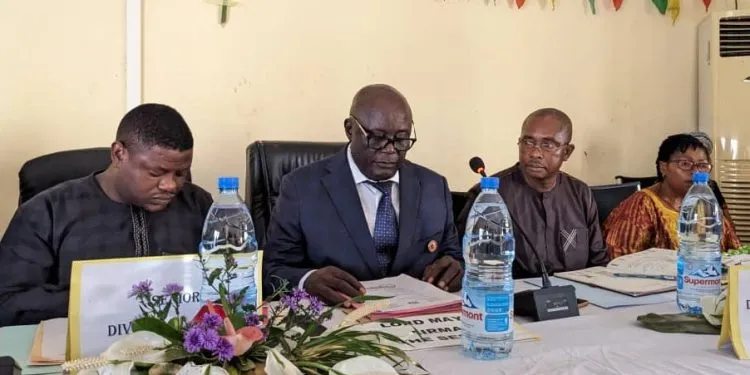The Muyuka Council, a constituent of Fako Division in the South West Region, has earmarked FCFA 1,100,000,000 for the upcoming fiscal year.
The budget reflects the Council’s plan to focus on addressing water deficits within the municipality, as revealed by Mayor Landjnou Djomgue Lazare.
The primary objective of the Council for 2024 is the revitalization of existing water catchments, with a particular emphasis on the Mile 30 catchment.
Despite being home to several freshwater springs, including one exploited by the Source du Pay water company, Muyuka continues to grapple with water shortages.
Mayor Lazare highlighted the importance of rehabilitating dams in Yoke and Masue to enhance water supply not only to Muyuka but potentially to the broader Fako and Meme regions.
“In Muyuka, we have two dams – in Yoke and Masue. So if they can rehabilitate those two dams, they will supply the whole Fako and maybe Meme,” Mayor Lazare stated.
He specifically addressed the urgency of rehabilitating the Mile 30 catchment to alleviate water pressure issues affecting residents of Balong and Up Stranger.
The 2024 budget for Muyuka Council represents an increase of FCFA 76.8 million, rising from FCFA 1,023,000,000 in 2023 to FCFA 1,100,000,000.
Within this allocation, FCFA 440 million is earmarked for investment projects, while FCFA 660 million will cater to recurrent expenditures.
However, the increased budget is not without its challenges.
Muyuka remains entrenched in the armed conflict affecting the Anglophone Regions, impacting the Council’s revenue streams and hindering tax collection efforts.
The Mayor acknowledged the adverse effects of the crisis on income, particularly noting the cessation or slowdown of sand and stone quarry activities, which were lucrative sources of revenue before the conflict.
Councillors conceded that the Council has been unable to collect tax revenue from the Ekona, a town severely affected by the crisis.
In response, Mayor Lazare outlined plans to mobilize additional revenue for 2024.
This includes sensitizing market stall owners on rent payments, intensifying revenue collection from operational quarries, and targeting the municipality’s largest transportation sector, motorbike riders.



